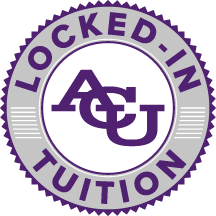Learn More
Build a Safer World for All
Let your persistent spirit guide you forward through a program examining the criminal justice field from practical, sociological, and political angles. As you explore your purpose in society — as a tenacious protector and individual embodying Christ’s teachings — our vibrant, virtual community unleashes your commitment toward something greater.
Lock In Your Tuition, Unlock Your Future.
Our Locked-In Tuition program guarantees you’ll pay the same price for your entire undergraduate degree.
Credit by Exam for TCOLE
Students who submit their TCOLE exam certificate may be eligible to receive credit for three courses: CRMO 205 – Introduction to Criminal Justice, CRMO 250 – Police Systems and Practices, CRMO 365 – Search and Seizure. This credit opportunity provides a savings of more than $3,500 toward your degree.
About the Program

Understand how to safely defend your community. The online Bachelor’s in Criminal Justice explores the legal, structural, and procedural sides of the field before introducing you to political factors, sociology-rooted theories, and research methods for gathering and analyzing data. You’ll then explore careers where you can apply what what you’ve learned in the vibrant, growing field of criminal justice.
Program Structure
All the Details on Your Degree
Prepare to enrich society through an understanding of ethics and leadership in law enforcement, a comprehensive perspective of the legal and justice systems, and why certain individuals commit crimes. Review the program’s structure and all course descriptions.
Required Hours
Total: 120 hours
University Requirements: 56 hours (including 9-15 hours in Bible)
Major: 64 hours (up to 22 hours in electives)
Cost: $395/Hour with $300 resource fee per term
Example Coursework
Law Enforcement Leadership
Professionalism and Ethics in Criminal Justice
Crime and Delinquency
Domestic Violence
Upcoming Start Dates
January 13, 2026
March 10, 2026
Objectives
ACU views our students as purposeful, persistent supporters of their respective communities. You’ll become well-versed in the workings of local and international politics and law enforcement theories and applications to take on active roles that leave an impact. To achieve this outcome, you’ll:
- gain a comprehensive understanding of criminal justice, policing, and legal systems;
- elevate your communication, decision-making, analytical, and problem-solving skills;
- discover how to collaborate with different populations and communities;
- start to see research and data analysis as tools for developing solutions to ongoing problems, including for determining the causes of crime and devising ways to protect your surrounding community;
- explore the relationship between human behavior and outside factors to determine why certain individuals engage in criminal behavior;
- apply criminal justice theories to real-world problems; and
- become familiar with current criminal justice trends, including the impact of advocacy and social justice.
Curriculum
Reflecting career paths and techniques in the field, the online Bachelor’s in Criminal Justice degree program encompasses a 27 credit-hour core, 15 credit hours of supplement courses in political science and sociology, and 22 credit hours of electives in more specialized topics. You’ll explore:
- key criminal justice system concepts pertaining to crime, control methods, and laws;
- the history and practices of law enforcement and its role in the criminal justice process;
- the foundation of criminal law and how it factors into court decisions;
- strategies for aiding victims of domestic and partner violence;
- leadership theories relevant to law enforcement and policy;
- arrest, search, and seizure laws and their applications;
- procedures of the U.S. legal and court systems;
- ethics in the criminal justice field and developing your own through a Christ-centered lens;
- the U.S. political system, civil liberties and rights, and the structure and functions of the judicial branch;
- sources of and patterns in criminal behavior; and
- research methods used in the criminal justice field for gathering data and conducting studies.
Meet the Program Director
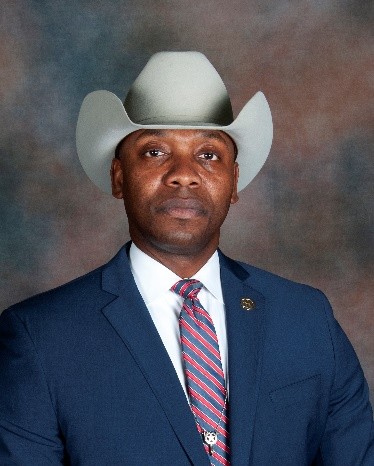
Dr. James Thomas, Bachelor of Science in Criminal Justice
Dr. James Thomas serves as Assistant Professor and Program Director for the online Criminal Justice program. He is an accomplished law enforcement executive, educator and program director with over 20 years of service in public safety, criminal investigations and leadership development. His career with the Texas Department of Public Safety began in 2001 and he went on to serve in the Texas Highway Patrol, the Texas Rangers Special Response Team and the Criminal Investigations Division. Over the years he advanced through multiple leadership roles, including Texas Ranger, Lieutenant, Administrative Captain, Major, Commander of Texas Rangers Company “F” and most recently Chief of the Training Operations Division.Dr. Thomas’s career is marked by high-profile investigative work, including homicide and violent crime cases, supervision of specialized units and recognition with awards such as the Department of the Army’s Public Service Commendation Medal and the Adolph Thomas Distinguished Service Award. He holds a Doctor of Education in Educational Leadership from Lamar University along with advanced degrees in criminal justice and behavioral science. His professional training includes the FBI National Academy and FBI-LEEDA Trilogy.
Spotlight

ACU Partners with Texas Department of Criminal Justice to Provide Tuition Discount for State Employees and Officials
In an effort to bolster TDCJ’s statewide efforts and mission to serve Texas citizens, ACU will encourage continuing education by providing a tuition discount on tuition to all TDCJ employees interested in pursuing a degree with ACU Online.
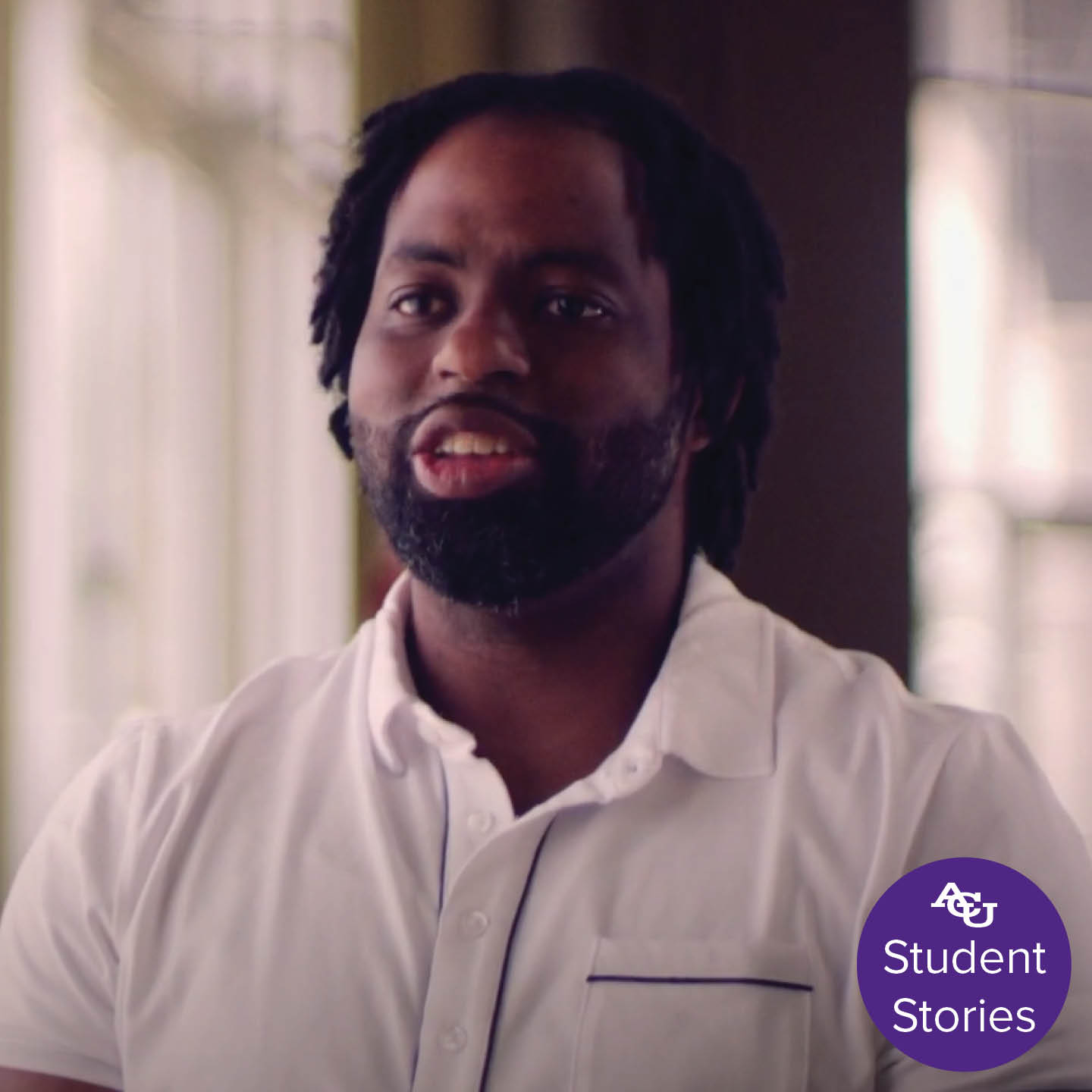
Student Spotlight: Edmund Garcia
Meet Edmund Garcia, military veteran, pastor, family man and first-generation college student at ACU Online. After serving his congregation in Pearland, Texas, for 12 years, Garcia realized he needed more than experience to provide counsel to his church members; he needed a degree. With the help of ACU’s undergraduate programs, he has not only gained the skills and knowledge needed to support his congregation, but created a clearer vision for his dreams.

10 Jobs You Can Get With A Criminal Justice Degree
Curious about what criminal justice roles you could pursue post-grad? Check out these 10 jobs to get with your degree.
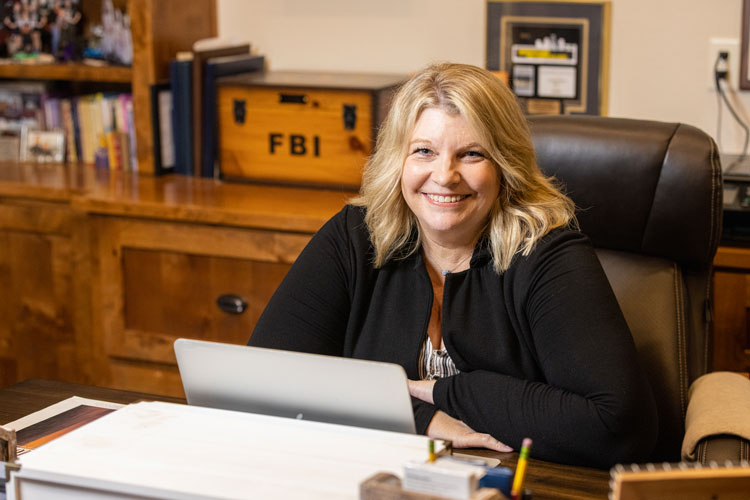
Faculty Spotlight: Dr. Brenda McAdoo
From prosecutor to FBI agent to program director, ACU alumna, Dr. Brenda McAdoo fuses her mission-mindset with real-life experiences to create an invaluable curriculum for ACU Online’s Criminal Justice students. Learn more about her story and goal as an educator.

Embrace a vocation where you’ll serve citizens in the name of justice. The Bureau of Labor Statistics predicts 7% growth for police and detectives between 2020 and 2030, with potential opportunities present in:
- law enforcement;
- probation and parole services;
- corrections;
- advocacy;
- witness assistance;
- game warden;
- emergency management;
- homeland security;
- case management; and
- social services.
As you think about your future, this degree gives you a foundation for law school or a graduate program in criminal justice or public policy.

To be considered for admission, students must:
- Submit official high school with a minimum 2.5 GPA and/or college transcripts with a minimum 2.0 GPA.
- Complete the online program application accompanied by a non-refundable processing fee.
Students are not required to submit ACT or SAT test scores.
Graduation Requirements: Students must earn a 2.0 GPA or higher to meet graduation requirements. Additionally, students must earn a C or higher in each major course and have a minimum GPA of 2.25 in the major.
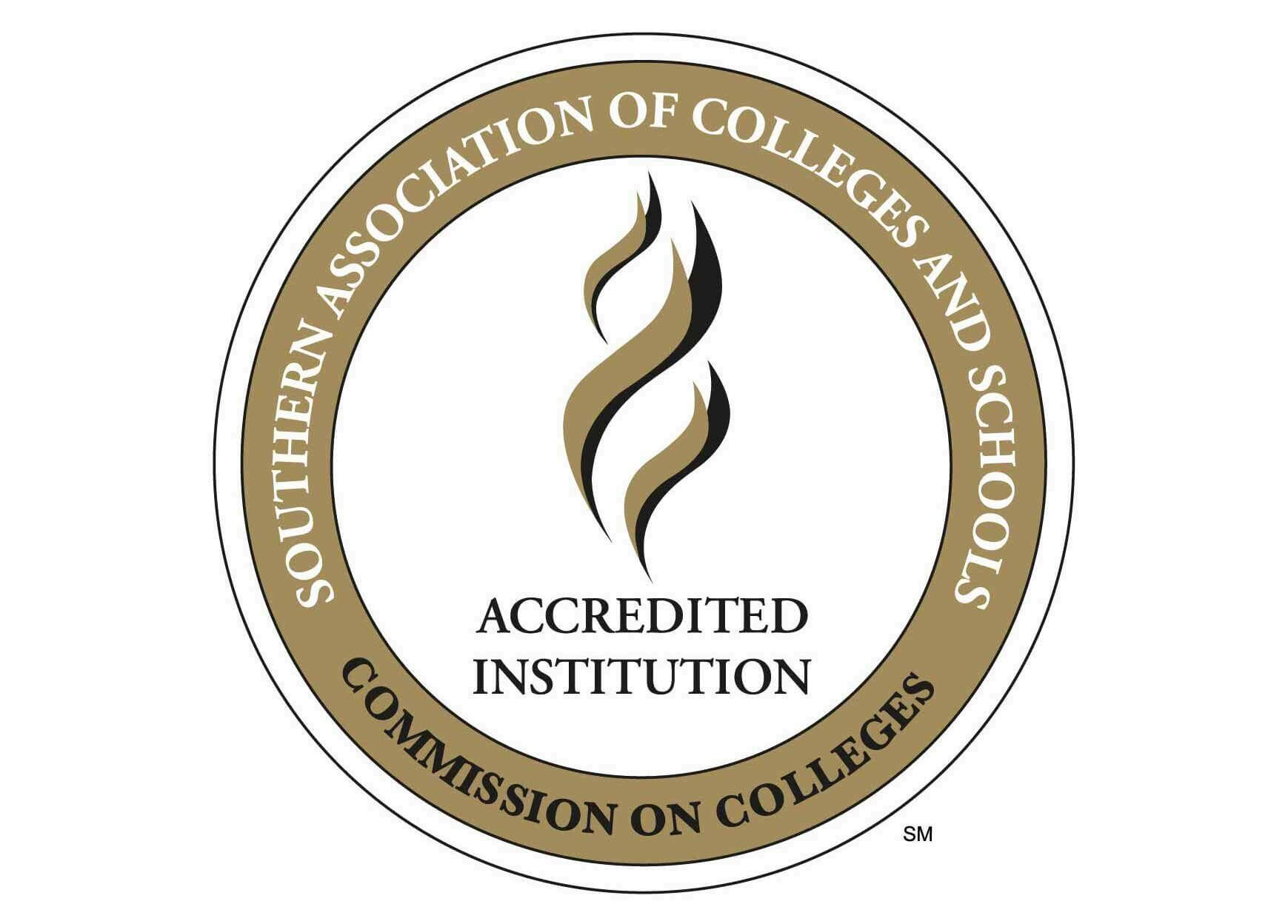
Abilene Christian University is accredited by the Southern Association of Colleges and Schools Commission on Colleges to award associate, baccalaureate, master’s and doctoral degrees. Contact the Commission on Colleges at 1866 Southern Lane, Decatur, Ga. 30033-4097 or call 404-679-4500 for questions about the accreditation of ACU.
Abilene Christian University enjoys a strong national reputation as one of the leading private Christian universities in the west and southwest, indicated by various ratings (such as U.S. News and World Report and other reports).

